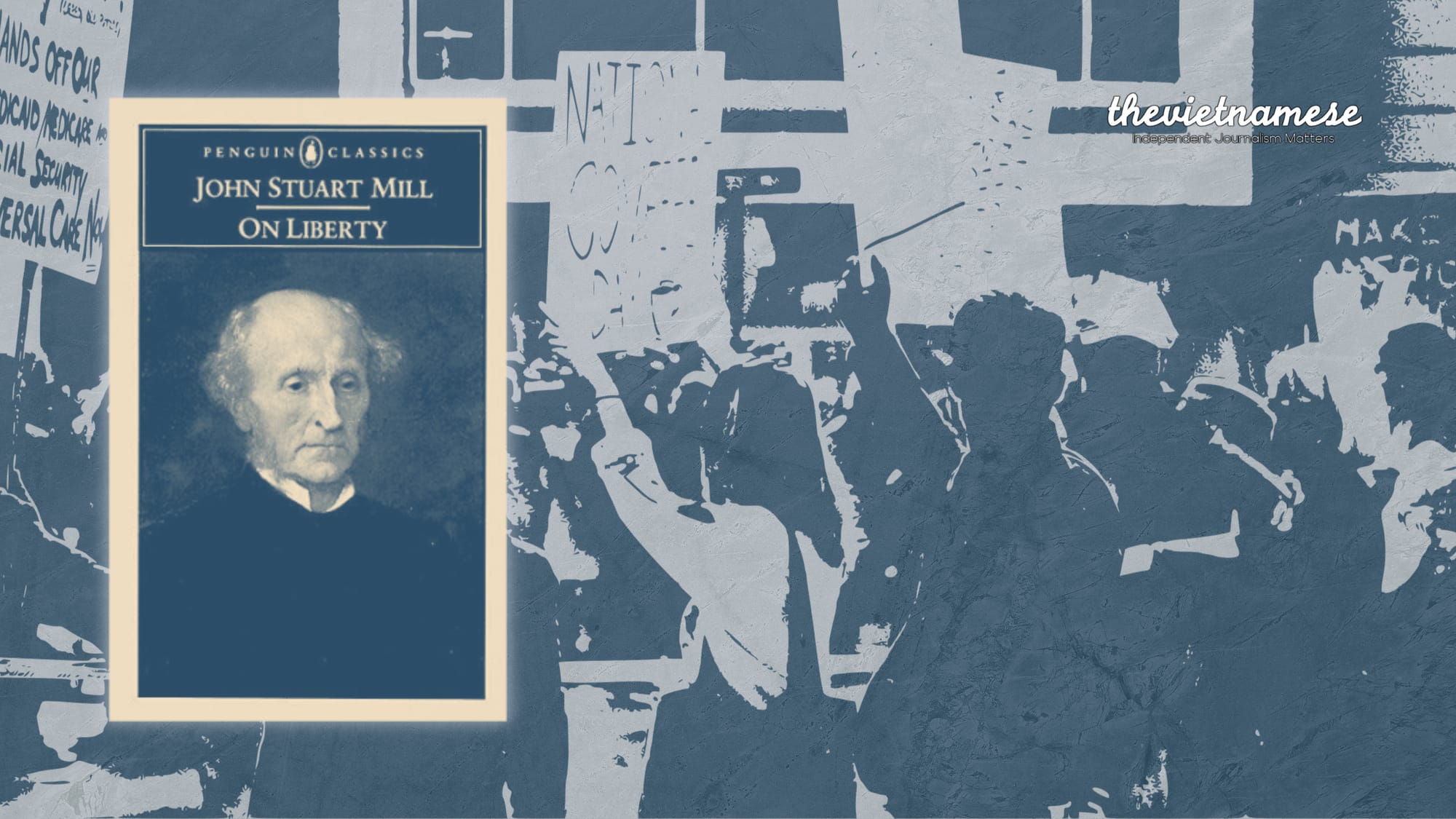Lê Giang wrote this Vietnamese article, published in Luật Khoa Magazine on June 4, 2025.
Freedom of Expression in Liberalism
Liberal ideology considers freedom of expression a natural, inalienable human right. It is seen as a fundamental condition that allows individuals to think independently, form personal will, and engage in public life as responsible citizens. However, this freedom is not boundless. Liberalism advocates for maximum protection of free expression, balanced with minimal restrictions.
British philosopher John Stuart Mill, in his classic work On Liberty (1859), laid out a foundational argument that still influences discussions about free speech today: “The worth of a state in the long run is the worth of the individuals composing it.” Mill argued that the state should only interfere with an individual’s actions if those actions directly harm others. This is his harm principle, which establishes a philosophical boundary for limiting freedom of expression.
Mill also declared, “The only freedom which deserves the name is that of pursuing our own good in our own way, so long as we do not attempt to deprive others of theirs.” From this perspective, Mill drew a clear distinction between offensive speech and harmful speech.
While individuals are free to express views that go against the majority, the government, or even societal norms, this right does not extend to speech that incites violence, slanders others, or causes tangible harm. Speech that promotes discrimination, incites violence, or threatens public order crosses acceptable boundaries and is no longer protected.
Ultimately, freedom of expression is not a license to say anything; it is the right to speak within limits that prevent harm to others. Defining these boundaries of harm is the most democratic way to maintain a public sphere that is both free and healthy.
Restricted Speech Categories According to John Stuart Mill
Freedom of Expression in Marxism–Leninism
From a Marxist-Leninist perspective, freedom of expression is not an absolute concept. Instead, it is intrinsically linked to socioeconomic conditions and class divisions, viewed as a product of production relations, class struggle, and a tool for revolutionary purposes.
As Karl Marx wrote in The Communist Manifesto: “The ruling ideas of each age have ever been the ideas of its ruling class.” This statement highlights a clear worldview: in a class-divided society, economic power dictates speech, the press, and ideology. Marx and Engels contended that “freedom of expression” in bourgeois society is merely a guise used by the ruling class to legitimize its voice and suppress revolutionary discourse.
Lenin further reinforced this during the Russian Revolution, asserting: “Freedom of the press in bourgeois society is freedom for the rich to own the press.” Consequently, true freedom of expression, for Marxists-Leninists, only exists when it serves the proletariat, advancing the goal of eradicating oppression and building a just society.
Lenin argued that during revolutionary struggles and socialist construction, restrictions on speech are necessary to protect revolutionary achievements and to counter reactionary forces, bourgeois ideology, and subversive rhetoric. He once stressed: “Freedom of speech cannot be used to undermine the revolution, spread hostile ideas, or weaken faith in the revolutionary government.”
In practice, many Marxist-Leninist regimes have institutionalized ideologically aligned journalism, often called the “revolutionary press,” which remains loyal to the Party. They tightly control what they categorize as “reactionary,” “distorted,” or “provocative” views.
This control is justified by the principle that “freedom cannot be separated from class responsibility.” From this perspective, speech is redefined as a tool for social development, political stability, and ideological guidance. Individual expression that clashes with the revolutionary community’s goals is subject to restriction, and even suppression.

